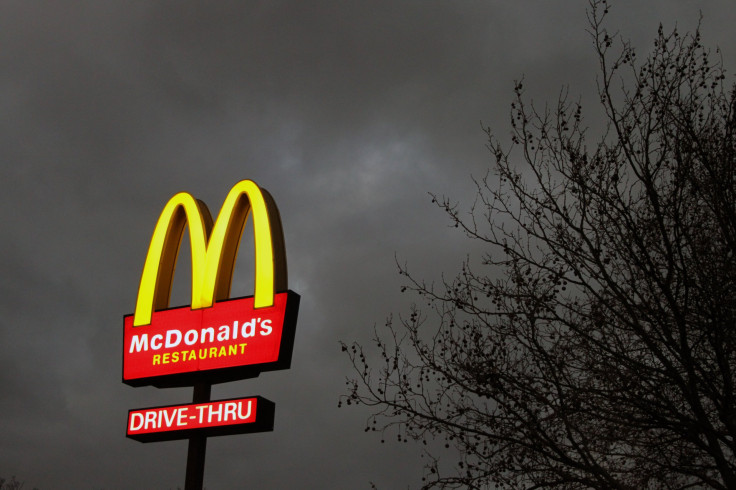10-Day McDonald's Diet Leads To 'Devastation' Of Man's Gut Bacteria

McDonald’s is a worldwide billion-dollar restaurant with 62 million customers on a daily basis and 75 hamburgers sold every second. Tim Spector, a genetics professor at King’s College London, wanted to see how much a person could handle, so he volunteered his son Tom as a test subject in his newest experiment: to eat at the Golden Arches for 10 days straight.
“I felt good for three days, then slowly went downhill. I became more lethargic, and by a week my friends thought I had gone a strange gray color,” Tom said, according to Spector's Quartz recount. “The last few days were a real struggle. I felt really unwell, but definitely had no addictive withdrawal symptoms and when I finally finished, I rushed (uncharacteristically) to the shops to get some salad and fruit.
Tom, a 23-year-old college student studying genetics at the University of Aberystwyth, sacrificed his body for medicine to better understand how gut microbes and metabolisms work, at least that’s what he and his dad had hoped. His father doesn’t follow the average American diet, so he thought his son would serve as a better representative of modern eating habits. Tom was allowed all of the Big Macs, fries, chicken nuggets, and Coca-Colas he wanted, and also collected feces samples before, during, and after his diet.
After sending in the samples to three different labs in order to ensure consistency, Cornell University’s microbiome test results said his gut microbes had been “devastated.” His father said they saw “massive shifts in his common microbe groups.” The gut microbes are a complex community of at least 1,000 different species of microorganisms that live in your digestive tract and are responsible for maintaining a healthy immune system, regulating digestion, and maintaining weight.
Tom lost half of his bifidobacteria (healthy bacteria designed to suppress inflammation in the digestive tract) after eating McDonald’s. His firmicutes, whose job is to extract energy from food, also became replaced with obesity-linked bacteroidetes. He lost nearly 40 percent of his total bacteria variety, and even after two weeks of recovering from the diet and returning to a healthy balanced regimen, his microbes still were unable to recover.
The fast food binge has been done before on a larger scale — its most infamous debut being in the “Super Size Me” documentary released over a decade ago. The social experiment in fast food gastronomy was performed by Morgan Spurlock for a month. However, no one had monitored the activity in their gut microbe until the Spector father-son duo gave it a try.
Now knowing a steady diet of fast food has the ability to kill healthy gut microbes in the body, researchers can focus on the importance of diversifying the gut. Over the last century, gut microbes in the human body have decreased by nearly a third. McDonald’s rakes in $24 billion in revenue every year — that’s a lot of bad guts. Today around the world, more people can recognize the Golden Arches (88 percent) than the cross (54 percent), according to “Fast Food Nation. “It’s no surprise 69 percent of the United States is either overweight and obese, which means in all likelihood their gut microbes are unhealthily imbalanced.
“We rely on our bacteria to produce much of our essential nutrients and vitamins while they rely on us eating plants and fruits to provide them with energy and to produce healthy chemicals which keep our immune system working normally,” Spector wrote. “We are unlikely to stop people eating fast food, but the devastating effects on our microbes and our long-term health could possibly be mitigated if we also eat foods which our microbes love like probiotics (yogurts), root vegetables, nuts, olives and high-fiber foods.”



























